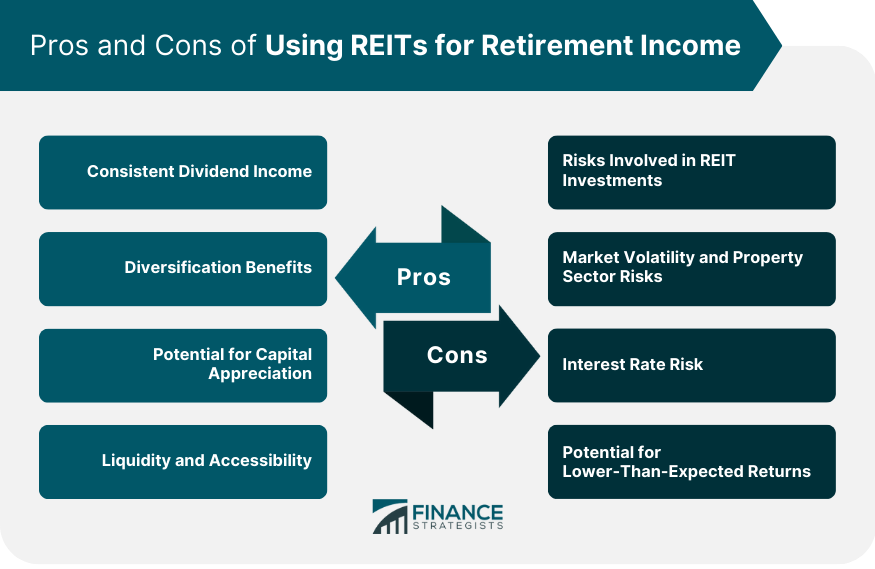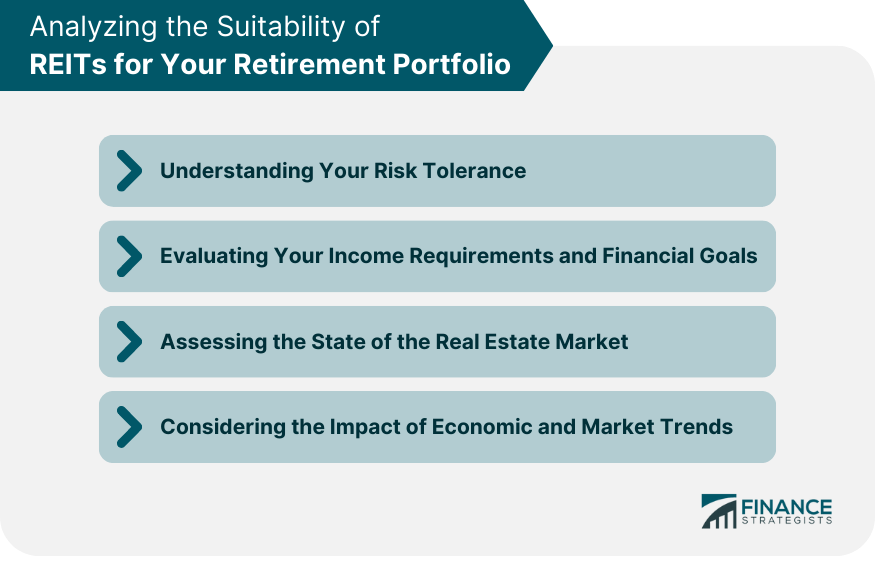A Real Estate Investment Trust (REIT) is an investment vehicle that allows individuals to invest in real estate without owning properties. REITs pool funds from multiple investors to invest in various real estate assets like residential or commercial properties. One key advantage of REITs is their potential for regular income generation. REITs also offer diversification benefits by providing exposure to different real estate sectors. They provide liquidity as they are traded on stock exchanges, allowing for easy buying and selling. However, it's important to consider risks such as market fluctuations and economic conditions affecting the real estate industry. REITs can be attractive due to their potential for consistent dividends and capital appreciation. They are companies that own, operate, or finance income-producing real estate, offering investors the chance to benefit from owning real estate without the need to directly buy, manage, or finance any properties. By law, REITs are required to distribute at least 90% of their taxable income each year to shareholders as dividends, which can provide a steady income stream. However, investing in REITs also involves certain risks. The performance of REITs is closely tied to the health of the real estate market, which can be volatile. As mentioned, REITs are required to distribute a substantial portion of their income as dividends, making them a potential source of regular income. This can be particularly appealing to retirees looking for steady cash flows. By adding REITs to your portfolio, you are investing in real estate, a different asset class from traditional stocks and bonds. This diversification can help mitigate risk, as different asset classes often perform differently under varying market conditions. Over the long term, well-managed REITs can provide not just income through dividends, but also capital appreciation as the value of the underlying properties rises. Unlike physical real estate which can be hard to sell, REITs are traded on major stock exchanges, providing investors with liquidity. They are also accessible since you can invest relatively small amounts of money compared to buying properties outright. Like all investments, REITs come with their own set of risks. The performance of a REIT can be influenced by factors such as changes in property values, vacancies or defaults in rent payments, and management quality. The value of REIT shares can fluctuate with the broader stock market. Additionally, different sectors within the property market (like residential, commercial, or industrial) can experience varied growth and decline rates, impacting the performance of sector-specific REITs. REITs, like other dividend-paying stocks, often face headwinds when interest rates rise. Higher rates can make bonds more appealing to income-focused investors, reducing demand for REITs and potentially causing their prices to fall. If the REIT's properties do not perform as well as expected, or if the REIT’s management is not effective, the expected dividends and capital appreciation may not materialize, leading to lower-than-expected returns for investors. Investing in REITs is not suitable for everyone. Some investors may be uncomfortable with the volatility of REITs or the risk associated with real estate. It's essential to understand your risk tolerance and investment horizon before adding REITs to your portfolio. Retirement income needs vary from person to person. Some retirees may require a higher income to sustain their lifestyle, while others may need less. It's essential to understand your income requirements and align them with your potential returns from REITs. The performance of REITs is tied to the health of the real estate market. Investors need to have a sense of where the market is headed, including trends in property values, rental rates, and vacancies. Economic factors such as GDP growth, employment rates, and consumer spending can affect the real estate market and, by extension, REITs. Similarly, market trends, such as shifts in interest rates or stock market volatility, can also impact the performance of REITs. Bonds are a traditional source of retirement income. They pay regular interest and return the principal at maturity. Bond funds, which pool together many different bonds, can offer a similar income profile with more diversification. Some companies are known for consistently paying dividends to their shareholders. These stocks can offer a combination of income and potential capital appreciation, much like REITs. Annuities and pension plans are financial products designed to provide a steady income stream during retirement. They can be a good fit for those seeking a guaranteed income, although they come with their own set of considerations and potential drawbacks. Owning rental properties can provide steady rental income and potential capital appreciation. However, this involves responsibilities like property management and dealing with tenants. Whether REITs should be used for retirement income depends on various personal factors such as risk tolerance, income needs, and understanding of the real estate market. Despite their appeal for consistent dividends and capital appreciation, REITs bring certain risks, notably market volatility and interest rate sensitivity. Hence, the decision requires a thorough examination and potential consultation with a financial advisor. Importantly, retirement planning should embody a diversified portfolio approach, potentially including bonds, dividend-paying stocks, annuities, pension plans, and even direct rental property investments alongside REITs. Each individual's financial scenario is unique, and thus, what suits one might not suit another. Thus, the choice to incorporate REITs as a retirement income source should be part of a broader, well-balanced financial plan.Overview of REITs
Should I Use a REIT for Retirement Income?
Pros of Using REITs for Retirement Income
Consistent Dividend Income
Diversification Benefits
Liquidity and Accessibility
Potential for Capital Appreciation
Cons of Using REITs for Retirement Income
Risks Involved in REIT Investments
Market Volatility and Property Sector Risks
Interest Rate Risk
Potential for Lower-Than-Expected Returns

Analyzing the Suitability of REITs for Your Retirement Portfolio
Understanding Your Risk Tolerance
Evaluating Your Income Requirements and Financial Goals
Assessing the State of the Real Estate Market
Considering the Impact of Economic and Market Trends

Alternatives to REITs for Retirement Income
Bonds and Bond Funds
Dividend-Paying Stocks
Annuities and Pension Plans
Rental Property Investments
Conclusion
Should I Use a REIT for Retirement Income FAQs
While REITs can provide consistent dividends and potential capital appreciation, they are influenced by real estate market volatility. Therefore, your decision to use a REIT for retirement income should be based on your risk tolerance, income needs, and understanding of the real estate market.
Using a REIT for retirement income can offer several benefits such as consistent dividend income, potential for capital appreciation, diversification benefits, and liquidity and accessibility compared to direct real estate investment.
Yes, investing in REITs involves risks such as market volatility, property sector risks, interest rate risk, and the potential for lower-than-expected returns. These should be considered alongside the potential benefits when deciding to use a REIT for retirement income.
Alternatives to REITs for retirement income include bonds and bond funds, dividend-paying stocks, annuities, pension plans, and direct rental property investments. Each of these options has its own set of benefits and drawbacks, and suitability will depend on your specific circumstances and goals.
REITs can provide a steady stream of income through dividends, making them an attractive option for retirees. However, like any investment, they come with risks and it's crucial to balance these against potential benefits. Always consider your own financial needs, risk tolerance, and consult with a financial advisor before making the decision.
True Tamplin is a published author, public speaker, CEO of UpDigital, and founder of Finance Strategists.
True is a Certified Educator in Personal Finance (CEPF®), author of The Handy Financial Ratios Guide, a member of the Society for Advancing Business Editing and Writing, contributes to his financial education site, Finance Strategists, and has spoken to various financial communities such as the CFA Institute, as well as university students like his Alma mater, Biola University, where he received a bachelor of science in business and data analytics.
To learn more about True, visit his personal website or view his author profiles on Amazon, Nasdaq and Forbes.













